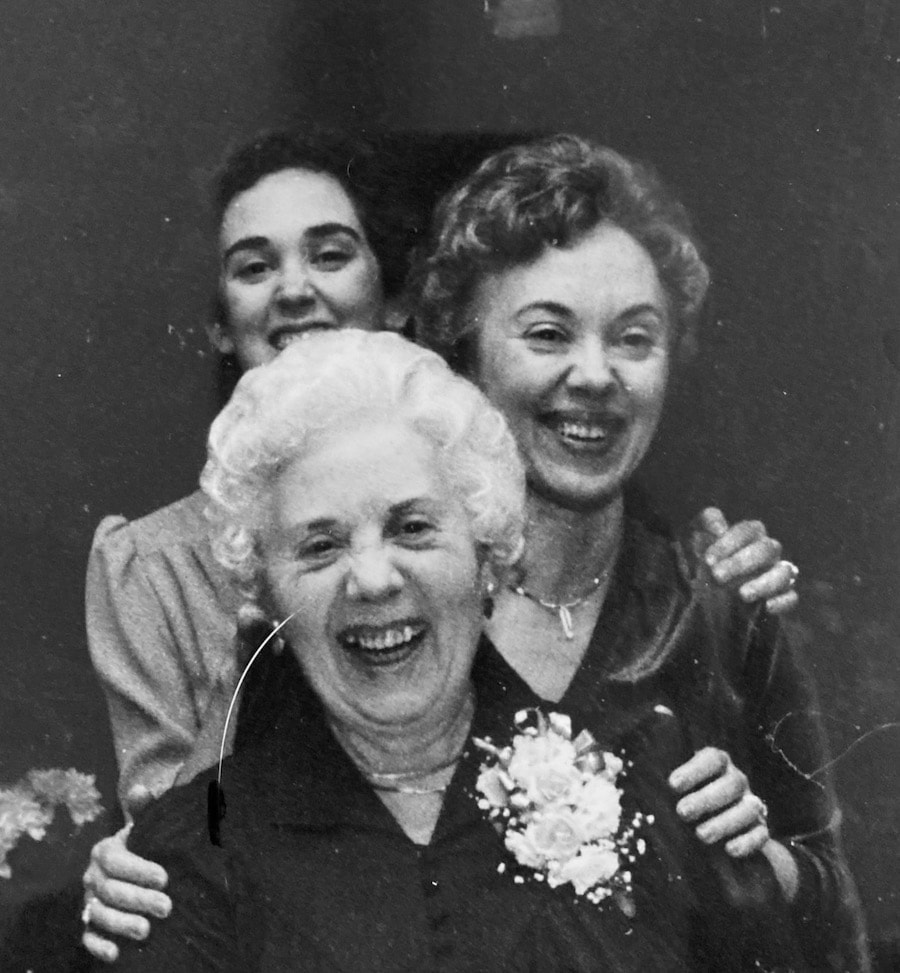I knew in my heart, I didn't want to be like my grandmother. But I didn't know what else to do.
Growing up, I never saw my parents have an argument. In fact, I was pretty convinced they didn’t argue. Occasionally my father might say something my mother didn’t agree with. She’d purse her lips, toss her head a certain way, give him a meaningful look (you didn’t want to get one of those looks, believe me…) grunt something like “huh” and, that would be it. I was pretty convinced that if you gave your significant other enough of a look, they’d know you were upset and they’d stop. Period. It certainly worked for them, and in their parenting, it certainly worked on me.
In the year or so before he died, I finally asked my Dad “Did you and Mom ever have an argument?” “Oh, yes,” he sighed ruefully. “But your mother had a rule that we were never to have one in front of you.” Looking back, I’m sure my mother thought she was protecting me. I think she had no idea how much it affected my ability to be in a relationship.
My mother’s parent’s fights were the stuff of legend. Truly epic. I witnessed a few of them, particularly as a young adult when they cared less about whether I was there. My grandmother would needle my grandfather with harsh words until he finally exploded. He was a very patient man – it took a lot of saying horrible things for that to happen. When he did explode, you could hear him on the other side of the house. My grandmother would hurl a final insult and walk out of the room in a huff. And that was basically it. I never saw what, if anything, passed for a make-up discussion. They just seemed to move on as if it hadn’t happened.
Growing up, I never saw my parents have an argument. In fact, I was pretty convinced they didn’t argue. Occasionally my father might say something my mother didn’t agree with. She’d purse her lips, toss her head a certain way, give him a meaningful look (you didn’t want to get one of those looks, believe me…) grunt something like “huh” and, that would be it. I was pretty convinced that if you gave your significant other enough of a look, they’d know you were upset and they’d stop. Period. It certainly worked for them, and in their parenting, it certainly worked on me.
In the year or so before he died, I finally asked my Dad “Did you and Mom ever have an argument?” “Oh, yes,” he sighed ruefully. “But your mother had a rule that we were never to have one in front of you.” Looking back, I’m sure my mother thought she was protecting me. I think she had no idea how much it affected my ability to be in a relationship.
My mother’s parent’s fights were the stuff of legend. Truly epic. I witnessed a few of them, particularly as a young adult when they cared less about whether I was there. My grandmother would needle my grandfather with harsh words until he finally exploded. He was a very patient man – it took a lot of saying horrible things for that to happen. When he did explode, you could hear him on the other side of the house. My grandmother would hurl a final insult and walk out of the room in a huff. And that was basically it. I never saw what, if anything, passed for a make-up discussion. They just seemed to move on as if it hadn’t happened.
Until my fourth decade on this planet, I didn’t have the tools to process anger, or understand what made a discussion escalate into an argument. Even more so, I didn’t really understand how to resolve an argument and move on. Fights in my early relationships and at the beginning of my first marriage resembled my grandparents, because that was the only model I had when the significant-look-thing broke down. I knew I didn’t want to be like my grandmother. In our early thirties, my ex-husband and I began years of therapy. Gradually, our therapists taught us how to have an argument and still be in a relationship, despite the fact that we ultimately decided that primary relationship would no longer be with one another. My second marriage, much happier, has given me ample opportunity to practice my skills. Unavoidably, we argue, but we seldom escalate to a fight.
Having an experience of anger, allowing myself the time and space to pause, to question “Is this really about ___? If not, then what?” to see the varied choices of my response, and then to act according to my heart is not something that came easily to me. In addition to the therapy, I credit my years of Alexander Technique lessons (which taught me to be aware, to pause, and then to make a choice in something other than a habitual direction) for teaching me to argue well and safely. For me, processing anger through the lens of Alexander Technique changed everything.

 RSS Feed
RSS Feed